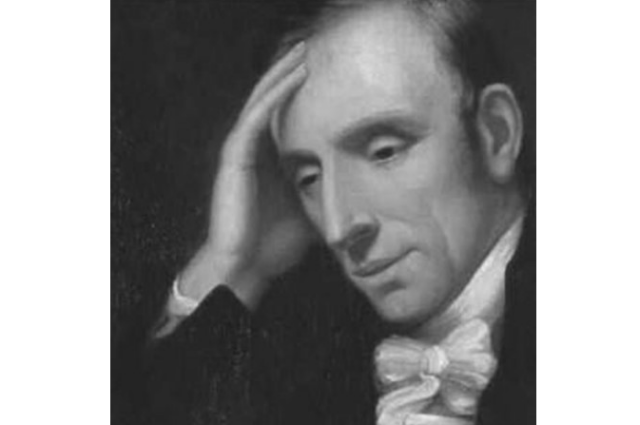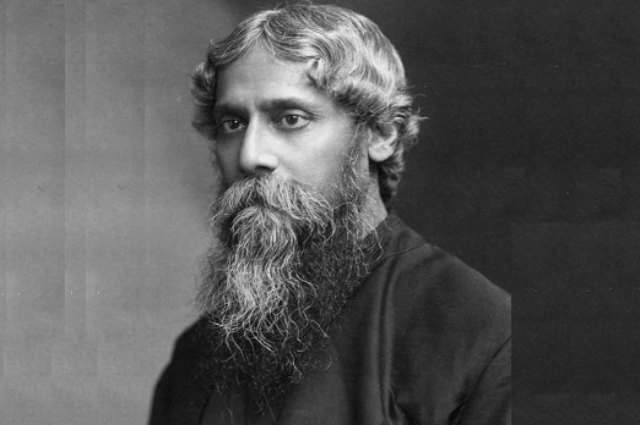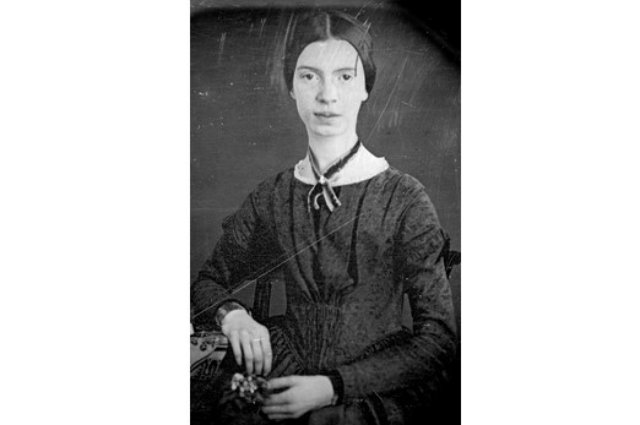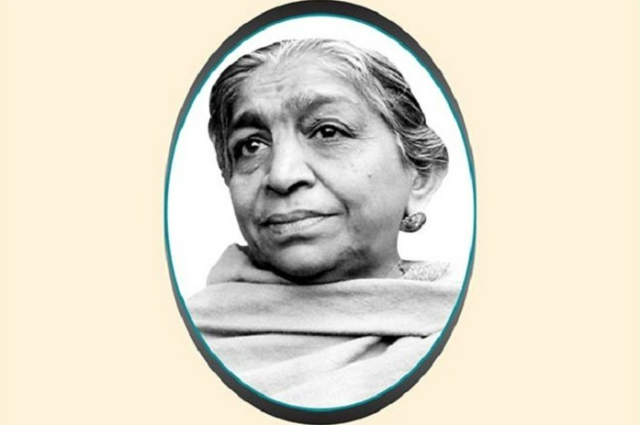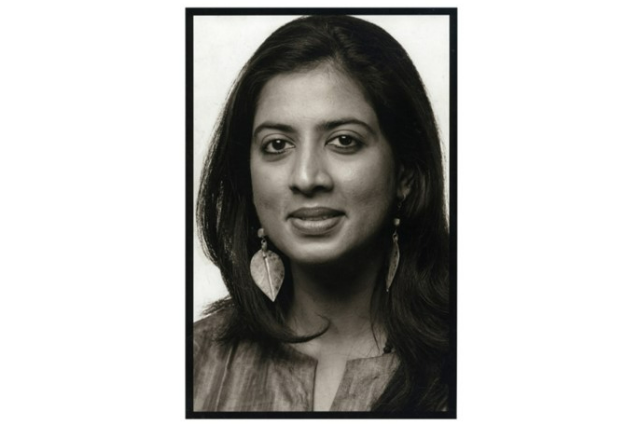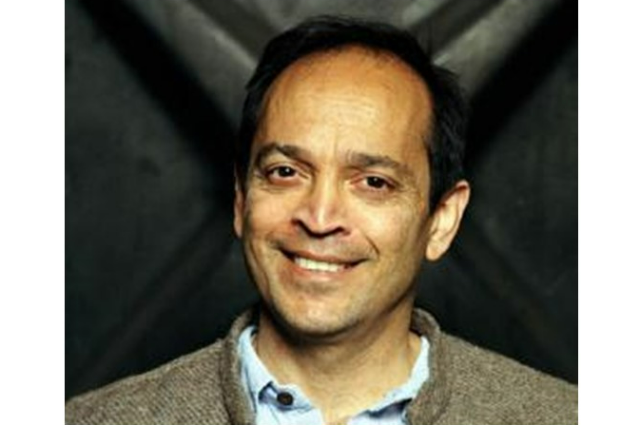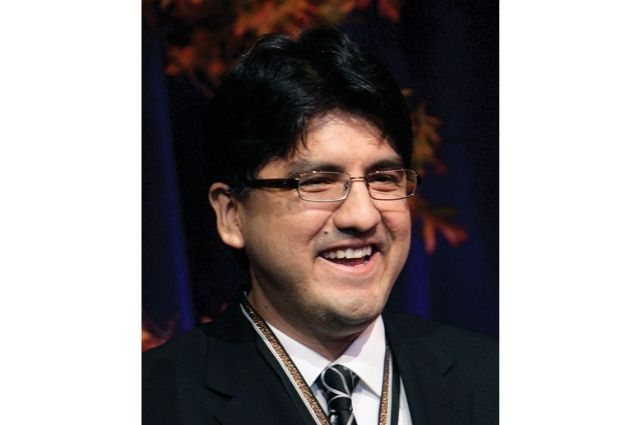Introduction
What makes you a poet is a gift for language, an ability to see into the heart of things, and an ability to deal with important unconscious material. When all these things come together, you’re a poet. But there isn’t one little gimmick that makes you a poet. There isn’t any formula for it. ~ Erica Jong
Classics, or essential texts, exist in every age and civilization. Poems have traditionally had a prominent position among these. Up until now, that is. We have a habit of forgetting that poetry exists in our disillusioned world. I'd like to expand on this, specifically to reject this omission and demonstrate that poetry is a necessary component of academics.
There is no such thing as a civilization without poets. Poets do not live in a dream world, especially if the work of creation is done alone. They are not loners living in fancy palaces, but rather producers of a multiverse that they share with us. Poets serve a vital fundamental role in the academic, whether creative poems are written or performed.

The ancient Greek philosophers were well aware of this. Poetry, in their minds, embodied a learning opportunity, a broad culture that predates all specific scholarly or political knowledge. They were well aware of the importance of educating Homer and other poets in moulding the brains of fresh faced free Greeks (those who were neither slaves nor metics). This is why, in The Republic, Plato was concerned that Homer's poetry depicted the gods in a negative light, leading to the removal of poets from his city-state!
In this blog we will be sharing about different ideas of various poets, in the historic and modern era and also, analysing poetry as a tool to be shared in a sensitive way.
Historic poets who made a great contribution towards English literature
William Wordsworth
William Wordsworth was a founding member of English Romanticism as well as some of the greatest influential characters and thinkers. He is recognised as a poet interested in spiritual and epistemology exploration, a poet interested with the human link to environment, and a staunch supporter of employing common people's vocabulary and language styles in poetry. William Wordworth was born on April 7, 1770; the son of John and Ann Cookson Wordsworth. He was born in the Lake District of England, a place that became strongly linked with Wordsworth for over two centuries after his death.
He started composing poems as a wonderful young boy in elementary school, and even before completing college, he took a traveling trip of Europe, strengthening his passion for the environment and compassion for the ordinary citizen, both of which are prominent topics in his poems. Lyrical Ballads, co-written with Samuel Taylor Coleridge, and The Prelude, a Romantic epic poem chronicling the "development of a poet's mind," are among Wordsworth's best-known works.
Wordsworth was an outspoken opponent of 18th-century poetic ideals. He believed that the everyday lives of impoverished, simple people might provide suitable material for poetry, and that the diction (words and phrases) used in poetry must be derived from human speech. He led the uprising against the unnatural and theatrical style of 18th century neo-classical literature with this phrase. He also intended to use his imagination to add colour to the modest subject selected for presentation in poems.
This theory is illustrated by Michael, The Solitary Reaper, To a Highland Girl, and several other poems. He strayed from the formula of using everyday, plain language in poetry in his Ode on the Intimations of Immortality, Tintern Abbey, and other works, and instead employed a grandiloquent manner. Ode to Duty, for example, embodies some characteristics of the 18th-century poetry against which Wordsworth led a protest. But, on the whole, Wordsworth's poetry is a total divergence from Pope's school. Wordsworth did, in fact, bring about a revolution in English poetry, both in terms of material and style.
Rabindranath Tagore
Rabindranath Tagore was a Bengali poet, novelist, musician, painter, and playwright who transformed Bengali literary works and music. He continued to live from 7 May 1861 to 7 August 1941. He is also the first non-European and the only Indian to be given the Nobel Prize in Literature in 1913 for his work Gitanjali, which contains extremely sensitive, innovative, and beautiful poems. In the west, his poetry in translations was regarded as mystical, and this, along with his fascinating charisma, gave him a prophetic aura. His exquisite language and enchanted poetry are still mostly unexplained outside of Bengal.
In a speech presented on his 70th birthday at the institution he formed in 1918, Rabindranath Tagore said:
“I have, it is true, engaged myself in a series of activities. But the innermost me is not to be found in any of these. At the end of the journey I am able to see, a little more clearly, the orb of my life. Looking back, the only thing of which I feel certain is that I am a poet (ami kavi).”
- As a poet of Mankind
Tagore recognises man as a material, living, intellectual, spiritual, and social being at different times, but he emphasises the spiritual and moral components of man's character
more. Every work by Tagore has an undercurrent of human significance. He sings about man's relationship with nature in the initial stages of the career, and man's relationship with other men in the second phase of Gitanjali.
Tagore's image of man is impacted by the Upanisadic thinkers, mediaeval saints, and bauls, yet he has experienced in his heart the magnificence of man, the eternity of his being, and hence his notion of man is his own. His work explores the human condition. He sings of man's glory and joys. He feels that a person's personality expresses his freedom. In his opinion, man's personality is boundless in nature. Since human personality is the manifestation of the infinite's creative notion in limited forms.
As a result, even though human personality is limited, as compared to boundless, it represents a great individual who has manifested Himself through any given centre. That super personality manifests itself in man's boundless activity of love and creation. As a result, man's personality at any given time uncovers his individuality as well as the supreme identity, both of which are linked. According to Tagore, an environment of freedom is required for the interpretation of man's real personality.
Emily Dickinson
Emily Dickinson is regarded as one of America's brightest and most innovative poets. She made it her mission to redefine poetry and the poet's work, challenging prevailing conceptions. She explored with communication, like Ralph Waldo Emerson, Henry David Thoreau, and Walt Whitman, in order to free it from conventional limitations. She created a new form of identity for the first person, similar to Charlotte Bront and Elizabeth Barrett Browning. Dickinson's speakers, like those in Bronte and Browning's poems, are sharp viewers who recognise both the inherent restrictions of their society and their anticipated and plausible getaways.
Dickinson constructed a particularly fragmented vocabulary for conveying what was possible but not yet achieved in her writing to make the abstract tangible, to establish meanings without constraining it, to occupy a house that never became a prison. She saw poetry as a double-edged blade, just like the Concord Transcendentalists whose writings she was familiar with. While it freed the individual, it also left him unanchored. In the last decade of the nineteenth century, however, the literary market provided new ground for her work. In 1890, four years after her death, the first volume of her poetry was released to great acclaim.
Dickinson's family uncovered forty handbound volumes containing nearly 1,800 poems, or "fascicles," as they are frequently referred to, after her death. Dickinson made these booklets by dividing and assembling five or six sheets of stationary paper and reproducing what appear to be finished poetry. A collection of dash-like markings of varied sizes and patterns can be seen in the handwritten poems (some are even vertical). The poems were first published binding, with her comments erased, according to the aesthetics of her various early editors.
Sarojini Naidu
Sarojini Naidu, named also as the "Indian Nightingale," was a prominent poet, writer, and Indian independence activist. She was the first woman to be elected President of the Indian National Congress, as well as the first woman to be elected Governor of Uttar Pradesh. On the 13th of February 1879, she was the youngest of eight siblings. Her family at that time lived in Hyderabad, India. Her father, Dr. Aghomath Chattopadaya, was a scientist and philosopher. Her mother, Varada Sunderi Devi, was a poet. Sarojini was a gifted child who was conversant in five languages and began writing poetry at a young age.
Her father intended her to continue in his footsteps in mathematics and science, but she surprised him by her command of words when she wrote a poem titled "The Lady of the Lake" that was thirteen hundred lines long, and he started to support her. He submitted 'Maher Muneer,' a play she authored many months later, to the Nizam (ruler) of Hyderabad. As a result of this, she was awarded a scholarship to college at King's College in England. She broadened her writing to include articles about India's major temples and mountains, as well as the intricate aspects of Indian social life.
Her political activism, on the other hand, had no effect on her desire to write. Her poetry was believed to be so wonderful that it could be sung. She published three collections of poems between 1905 and 1912. 'The Golden Threshold' (1905) established her as Bul Bule Hind, or Bharata Khokila — India's Nightingale. She presented "The Golden Threshold" to Edmund Gosse, an author she met while studying in England and who "first showed me the way to the golden threshold," as she put it. This was a compilation of poems and folk tunes. 'In the Forest,' a melodramatic verse, was one of the poems.
Modern poets who made a great contribution towards English literature
Arundhathi Subramaniam
Arundhathi Subramaniam is a religious and cultural poet and writer. She has managed as a poetry writer, curator, and journalist in the fields of literature, classical dance, and theatre over the years. She splits her work in Bombay and Coimbatore, where she runs a yoga studio. Arundhathi Subramaniam is the author of three collections of poetry, the most recent of which is Where I Live: New & Selected Poems, published by Bloodaxe Books in the United Kingdom. Her written contributions includes the bestseller memoir of a modern mystic Sadhguru, More Than a Life, published by Penguin, and a book on the Buddha, Book of Buddha, published by Penguin Books (reprinted several times).
She co-edited a Penguin anthology of modern Indian love poems in English and served as an editor on a Penguin anthology of articles on religious trips in the country (Pilgrim's India) (Confronting Love). As a poet, she has been welcomed to literature seminars and exhibitions in many regions of India, as well as in the UK, Italy, Spain, Holland, Turkey, China, West Africa and Israel, and her work has been translated into multiple languages, including Hindi, Tamil, Italian and Spanish.
Arundhathi has led a debate on the inter-arts meeting called Chauraha at the National Centre for Performing Arts in Mumbai for many years. She has also served as the NCPA's Head of Indian Classical Dance. During 1989, she contributed articles on literature, classical dance, theatre, and culture to a variety of publications (along With the Times of India, The Hindu, and The Indian Express, among many others). She has also written columns for Time Out, Mumbai, The Indian Express, and New Woman on cultural and literary works.
Natasha Trethewey
Natasha Trethewey is the daughter of poet, educator, and Canadian emigrant Eric Trethewey and social worker Gwendolyn Ann Turnbough, and was born in Gulfport, Mississippi. Trethewey, the daughter of a mixed-race couple, was six years old when her parents divorced. She then spends considerable time with her mother in Atlanta, Georgia, and her father in New Orleans, Louisiana. Trethewey majored English at the University of Georgia, received an MA in English and artistic pursuits from Hollins University, and an MFA in poetry at the University of Massachusetts, Amherst, after being motivated to study as a child.
Trethewey is the writer of five poetry records: Monument (2018), Thrall (2012), Native Guard (2006), Bellocq's Ophelia (2002), and Domestic Work (2000). She's furthermore the
author of Beyond Katrina: A Meditation on the Mississippi Gulf Coast, a literary nonfiction work (2010).
Research grants from the Guggenheim Foundation, the Rockefeller Foundation, the National Endowment for the Arts, and Harvard's Radcliffe Institute, where she had been a Bunting scholar, are among Trethewey's many distinctions and distinctions. She has held positions at Duke University as the Lehman Brady Joint Chair Professor of Documentary and American Studies, Emory University as the Robert W. Woodruff Professor of English and Creative Writing, and Yale University as the James Weldon Johnson Fellow in African American Studies at the Beinecke Library.
Vikram Seth
Vikram Seth is one of India's most well-known writers and poets. He was born in Kolkata on June 20, 1952, to Leila Seth, a judge, and Prem Seth, a shoe business executive. His ancestors came from Punjab. As a child, he travelled extensively with his family, from Batanagar to Danpur to London.
He earned his creative breakthrough in 1986 with the novel The Golden Gate, following poetry and adventure writings. 690 rhyming iambic tetrameter sonnets make up the novel's framework. It's a romantic satire that depicts the existence of yuppies who are looking for love for financial motives. Seth was honoured by India's National Academy of Letters with the Sahitya Akademi Award in 1988. Seth's second work, however, catapulted him into the spotlight. A Suitable Boy (1993) is a 1349-page colossus, unlike any other English-language book released previously. The work delves into post-independence nationwide and political challenges. There isn't a single narrative focus in the book. Seth exemplifies society's problems in divided India, which include Hindu-Muslim tensions, scholastic issues, intra family ties, and land improvements.
Seth has explored a variety of genres in his work. He began his creative career by penning poetry. Mappings, his debut collection of poetry, was published in 1980. That he sent a hardcopy to Philip Larkin, a well-known English poet, was criticized. However, he urged Seth to persevere despite the obstacles of writing. The Humble Administrator's Garden, the second volume, was published in 1985. Seth's literary prowess was recognised with the Commonwealth Poetry Prize for this volume. Seth also wrote a couple of travel books. In 1983, the book From Heaven Lake: Travels Through Sinkiang and Tibet was published, detailing a journey through Nepal, Tibet, and China.
Sherman Alexie
Sherman Alexie is a poet, author, performer, and filmmaker of Native American descent. His poems and short stories about contemporary Native American reservation life have received widespread acclaim, including The Business of Fancydancing (1992), The Lone Ranger and Tonto Fist Fight in Heaven (1993), which won a PEN/Hemingway Award, and Smoke Signals (1998), a critically acclaimed film premised on one of Alexie's short stories for which he co
wrote the film script. Alexie took the World Heavyweight Poetry title for four years and was a critically regarded performer of his own poetry. Many of his poems are still performed at poetry slams, fairs, and other places, and he has been praised for the intensity and passion he gives to his works.
His poetry, novels, and shorter tales elicit anguish and outrage, but also a spirit of appreciation and empathy for individuals who appear to be trapped in terrible situations. Alexie's protagonists fight to endure the relentless hammering of their thoughts, bodies, and souls by white American culture and their own identity and feeling of impotence, whether they are engaged with violence, drinking, or narcotics.
Alexie has received multiple honorary degrees and prizes, such as the Mason Award in 2009, the Stranger Genius Award in 2008, a Pushcart Prize, the PEN/Malamud Award, and a National Endowment for the Arts Poetry Fellowship. He is a popular public speaker who has been on nationally syndicated radio and television shows such as the McNeil-Lehrer Report, NOW with Bill Moyers, and the Colbert Report. With his wife and two sons, he resides in Seattle, Washington.
Poetry when shared in a sensitive way
Poetry is meant to be presented in a thoughtful manner. That is how it forms a person 's physique and mind. It is a medium for imparting individual ideas and understanding, such as a feeling of good versus bad, historical experience, magnificent accomplishments of men and women, historical traditions, and linkages with nature, by pursuing the pathways of emotions, sensitivities, and imaginations.
This understanding is the development of imaginations and memories, as well as the waking up of the emotions through the creation of elegance in language and speech. It's a show that involves the entire body including all the senses. Because the feature – of what is expressed or communicated – records as much as the importance or the “message”. As the French poet and philosopher, Paul Valéry(link is external) (1871-1945) explains in his book, Ego Scriptor: “The goal of the poet is not to communicate a thought, but to give birth to an emotional state in the other which is similar (but not identical) to his own. The idea only plays a partial role (in himself and the other).”
Conclusion
Every poet has their own struggle journey. Success comes to those who have the courage to take lots of rejections and failures. As a result, poets' historical and contemporary roles in society are to connect, educate, and motivate audiences through mastery of language as it relates to feelings and concepts. For a variety of factors, poetry is recognised as a separate literary art form. A poet creates parallels in a world with over 100 billion different types of materials, each one distinct. What makes poetry so lovely is the similarities that we can't notice on our own.
. . .
References:
- en.unesco.org/courier
- spillwords.com/the-importance-of-poetry
- www.researchgate.net/publication
- wordsworth.org.uk/wordsworth
- poets.org/poet/william-wordsworth
- www.biography.com/writer/william-wordsworth
- www.poetryfoundation.org/william-wordsworth
- www.poetryfoundation.org/rabindranath-tagore
- www.best-poems.net/rabindranath_tagore
- www.englishliterature.info
- www.poetryfoundation.org/poets/emily-dickinson
- poets.org/poet/emily-dickinson
- mypoeticside.com/poets/sarojini-naidu-poems
- www.poemhunter.com/arundhathi-subramaniam
- www.poetryfoundation.org/poets/natasha-trethewey
- www.famousauthors.org/vikram-seth
- www.poetryfoundation.org/poets/sherman-alexie

